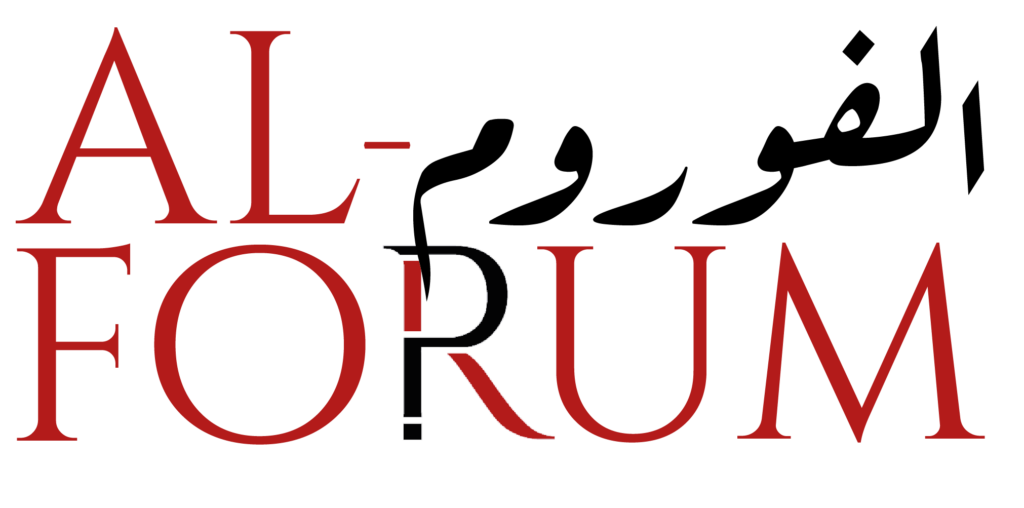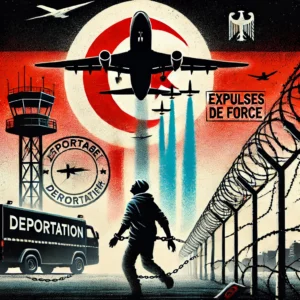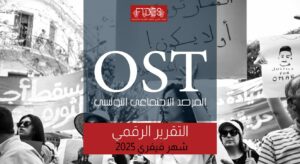Increasing domestic violence: the women of Gafsa are suffering!
By Rihab Mabrouki
“Non-violence is the greatest force at the disposal of mankind. It is mightier than the mightiest weapon of destruction devised by the ingenuity of man.” This is how Mahatma Gandhi described the power of nonviolence to achieve peace and security for various segments of society. In Tunisia and in the governorate of Gafsa, the phenomenon of domestic or family violence, to which women and children are often subjected, threatens the security and structure of the family and society. This phenomenon reflects the situation of economic and social exclusion that these categories experience in their lives, leading to severe effects, extreme marginalization and heavy consequences for this category of the society. UNICEF estimates that more than 80% of children in Tunisia are victims of violence within their families [1] and according to statistics provided by the World Health Organization (WHO) “out of three women in the world, at least one is beaten or forced to sexual intercourse or subjected to other forms of abuse.[2]
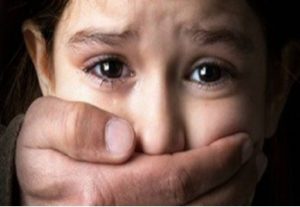
“ Violence against children [3]
Conflicting legislation
More than half a century ago, women in Tunisia were fighting a long battle to establish their right to equality and safety with ample contradiction between the legislative provisions, the laws, the Constitution and the universal conventions and treaties to which Tunisia has adhered, the most important of which is the CEDAW Universal Convention on the abrogation of all forms of discrimination against women, considering that violence is the most serious form of discrimination against women. On the other hand, their reality imposed by social norms, customs and culture of coexistence with violence within the social sphere in which they live makes violence against women an imperative and women must normalize with these practices in order to ensure the sustainability of their marriage or to preserve their “family stability”.
The governorate of Gafsa in southwest Tunisia lives under the influence of this phenomenon, which although alarming continues to grow and the majority of women, who are victims of violence or their children, prefer to keep silent and not to report to the police or seek justice and obtain their rights guaranteed by the constitution. The researcher and sociologist Rahma Ben Slimen relates this issue to the deterrent laws, which seem to be relatively limited in preventing and reducing various types of violence, as she puts it, so often women seek to justify the violence they are subjected to. She pointed out that there are many women who consider that this behavior, as long as it comes from the husband, brother or father, cannot be condemned, they say “he is my husband, my support and the father of my children.” Or “he hits me but he stands up for me” or even “after all he is simply my husband”. Most of these representations originate from the cultural system in the form of numerous popular examples, all of which have been transmitted through the child’s socialization process from the family institution to school, knowing that it is at this particular stage that the process of building the child’s personality, perfecting and discovering his or her identity is prepared.
Domestic violence in the governorate of Gafsa: a dangerous and persistent phenomenon
Killing a human being with no criminal charge, mutilating a human being and causing him or her great pain, making someone suffer terrible and irreparable pain : This is violence, this is the criminal offence that the laws, the constitutional texts, the charters and the international conventions speak about. This has been defined by Human Rights as “the intentional or threatening use of physical force against a person, group or society resulting in or likely to result in injury, death, mental harm or impairment of development and deprivation. This includes a range of acts, statements or behaviors from violence, insult and humiliation, including psychological, symbolic, sexual and economic violence, to income deprivation.
Despite the fact that the provisions of the Personal Status Code have received national and global approval, since its promulgation, impressions and appreciations have prevailed and emphasized that the culture of women’s integral rights has been established and their right to live as equal citizens has not been compromised, a status granted to them by the country’s Constitution. However, this has not prevented the growing phenomenon of violence, which takes different forms as its social and cultural determinants change.
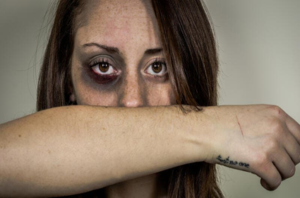
Violence against women[4]
Concrete examples
Rafika, a 30 year old woman from the town of Redeyef, one of the mining towns in the governorate of Gafsa, with teary eyes and a hoarse voice, told us the details of the suffering she experienced with her husband. She was daily victim of violence in various forms, both physical and moral, and this led her to separate and flee her reality to the house of her deceased parents with her children. Rafika is one of the thousands of women in these regions who suffer daily violence from their husbands, fathers or brothers, but who prefer to keep silent and not turn to the legal structures responsible for protecting them from this discriminatory practice. One of the most shocking cases was that of a young girl, 8 years old, who lives with her mother-in-law and has been subjected to all forms of violence and torture.
Sociological interpretation of the phenomenon
There is no doubt that the growing phenomenon of violence against women has its causes, factors and societal implications and cannot be understood in isolation from the social, cultural and economic context of society, which is experiencing an increase in the incidence of violence. In this context, the sociologist Rahma Ben Sliman states that “The growing phenomenon of violence in this particular region of the Republic (Moulares in the governorate of Gafsa) characterized by local and cultural conservative features as women, consciously or unconsciously, accept the violence they experience in the public space and, even if they object, they must be silent and discreet so as not to be condemned by society and by men close to them.
Our interviewee considered that this “brings us back to a circle of violence, of submission, and makes us understand that men, through the different mental images that emerge in their behavior, actions and reactions to violence against women in the public space, as well as in the private, are looking for a moral legitimization for violence and the referral of the causes of violence to women’s clothes and behaviors, trying to condemn them and hold them responsible even when they are victims of harassment or rape, deliberately ignoring the fact that all women, with their different orientations, are daily exposed to sexual aggression and violations of all kinds. “
This confirms the dominant stereotype of women as women, regardless of their appearance in the public or private space. This leads us to emphasize the role of socialization and the educational component in determining the image of women in society.
Ben Slimane argued that the solution lies in a rethinking of a strategic sensitization process that would raise awareness of the seriousness of violence against women and draw attention to the issue of exclusion from violence and its justification in particular, by examining various methods of initial socialization, especially to reduce the justification of various forms of violence against women in different public and private spaces, including symbolism ,physical, sexual and moral, and to try to change the stereotype in the measure of the sharing of roles within the family and society and to reduce the permanent distortions between what is imposed by the law and what is required by the inherited socio-cultural system.
The phenomenon of violence continues, despite the fact that anti-violence associations have sought to reduce it. Nahla Akremi the activist in civil society stressed that the fear of social reaction is the immediate cause of the rise of violence, which was sometimes considered murder. She said that the governorate of Gafsa is ranked first in 2018 in terms of commitment to women victims of violence.
Appeal to end violence
The defense of women’s rights and the pursuit of their legitimate right to a safe life free from all forms of discrimination, exclusion and repression are at the heart of the Tunisian Forum for Economic and Social Rights’ principles. Although the increasing frequency of violence against women within the family is an indication of the seriousness of this phenomenon, the call of our organization for the enforcement of laws and the implementation of conventions protecting women’s rights without forgetting the awareness, in particular the awareness of women to their rights and their encouragement to go to court continues to be renewed as long as the gap between legislation and reality remains large. The low level of awareness of women in Gafsa to the importance and seriousness of this problem is one of the reasons for the increase and spread of this phenomenon.
[1] https://www.rayaljadid.com/2019/10/17/
[2] https://annabaa.org/nbanews/67/208.htm
[3] https://www.google.com/search?q
[4] https://www.ohchr.org/ar/professionalinterest/pages/cedaw.aspx
